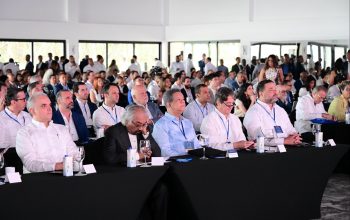news
GFDD and FUNGLODE Invited to Participate in ECOSOC Innovation Fair
June 19, 2008
Global Foundation for Democracy and Development (GFDD) and Fundación Global Democracia y Desarrollo (FUNGLODE) were invited to participate in the United Nations Economic and Social Council’s Innovation Fair, taking place, June 30 -July 3, 2008, from 9:30 am to 6:00 pm at UN Headquarters in New York City. During the exposition, selected private, public, non-profit and civil society
organizations will showcase innovative sustainable development initiatives pertaining to the thematic areas of: environmental preservation, biodiversity, sustainable technological advancement, industrial development, poverty alleviation and agricultural development.
organizations will showcase innovative sustainable development initiatives pertaining to the thematic areas of: environmental preservation, biodiversity, sustainable technological advancement, industrial development, poverty alleviation and agricultural development.
The objective of the forum is to promote the exchange of experiences related to proven sustainable development strategies, in an effort to fulfill the UN Millennium
Development Goals.
Development Goals.
GFDD and FUNGLODE will be displaying materials highlighting development gains achieved through the following initiatives: the Dominican Republic Coral Gardens Project, the Dominican Republic Global Film Festival (DRGFF), the Global Media Arts Center (GMAI), InteRDom, Dominicanaonline.org and the United Nations Association of the Dominican Republic (UNA-DR).
The Dominican Republic Coral Gardens Project
The Dominican Republic Coral Gardens Project is a dynamic public-private initiative to conserve and restore threatened Caribbean coral reefs and marine protected marine habitats in the Marine Protected Areas (MPAs) of Punta Cana, Bayahibe, Samana and Sosua Bay. The Project is being implemented by GFDD, FUNGLODE and Counterpart
International, in association with a series of national stakeholders, non-governmental organizations, divers’ and fishermen’s associations, and representatives from the Ministry of Environment and Natural Resources and the Ministry of Tourism.
International, in association with a series of national stakeholders, non-governmental organizations, divers’ and fishermen’s associations, and representatives from the Ministry of Environment and Natural Resources and the Ministry of Tourism.
The initiative seeks to:
- Reduce negative impacts from land-based pollution, tourism, over-fishing and sedimentation
on coral reefs in marine protected areas, via public-private education, and technical assistance and training from various sectors
- Re-establish healthy, reproductive populations of acropora cervicornis within marine protected zones
- Build capacity for coral reef restoration among marine park area managers, fishing communities and
the dive tourism industry, through training of trainers in topics such as: coral reef fishery ecology, destructive reef usage, over-fishing, management and stewardship of marine resources
- Establish a network of MPA practitioners throughout the Dominican Republic trained and involved in hands-on, low-tech restoration and the monitoring of such activities
In addition to being an initiative focused on
environmental preservation, the Project also realizes work in the area of community development. It works with hotels, schools, local fishing and diving associations and other institutions to raise awareness of the impacts of climate change and the need for environmental management. As part of the program, community actors work collaboratively to devise territorial boundaries and plans for the management of MPAs.
environmental preservation, the Project also realizes work in the area of community development. It works with hotels, schools, local fishing and diving associations and other institutions to raise awareness of the impacts of climate change and the need for environmental management. As part of the program, community actors work collaboratively to devise territorial boundaries and plans for the management of MPAs.
Moreover,
it is a form of
it is a form of






